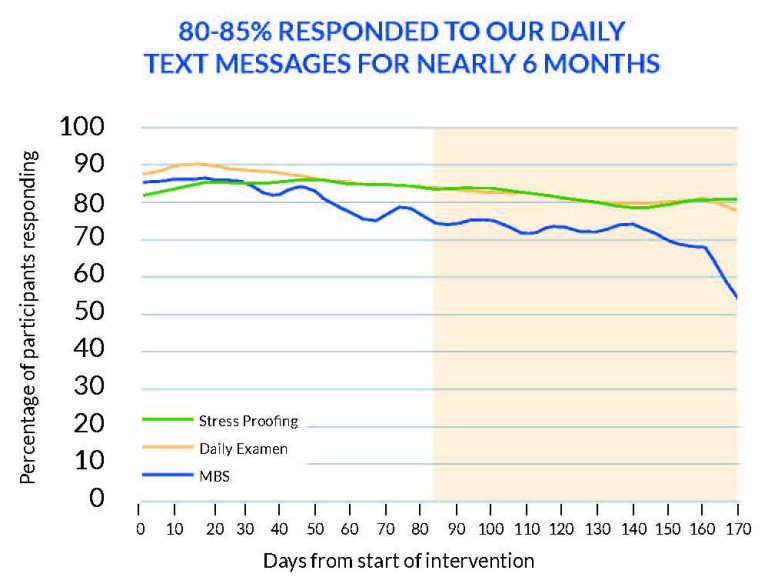Participants in Spirited Life: Selah agreed to offer data on their experience so each practice could be tested and recommended as appropriate to clergy in the future.
Surveys
All participants were invited to complete three 30-minute surveys during the study. These surveys were completed at baseline (before learning a practice), then again 3 and 6 months later. The survey allowed us to measure participants’ self-reported stress symptoms using 41 items of the Calgary Symptoms of Stress Inventory and anxiety symptoms using the Generalized Anxiety Disorder-7 measure, as well as tracking depressive symptoms and spiritual well-being.
Heart Rate Variability
Heart Rate Variability is a biometric measure of the body’s ability to recover after a stressful episode. It measures our nervous system’s ability to respond to stressful events. Improvements in HRV are related to fewer strokes and cardiac events. Most participants were invited to wear a heart rate monitor for 48 hours—once before learning the practice and then again three months later. Each participant’s average heart rate variability over this 48-hour period was compared between the baseline and follow-up time point to see if there were significant changes in HRV.
Daily Practice Reporting
All participants submitted how much time they spent doing their stress management practice daily via text message for 180 days. This daily text message served both to prompt participants to engage in their practice as they developed a new habit and allowed us to understand if and how much pastors were engaging the program.
In-Depth Interviews
About 10% of our participating pastors were invited to be interviewed at various time points throughout the study. These 30-60 minute conversations gave us qualitative insight into how the practices were impacting clergy well-being.

